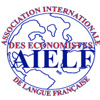Knowledge management in international supply chains
Maciej SZYMCZAK
Université des Sciences Économiques et de Gestion de Poznań, Institut d’Économie Internationale,
Département Logistique, Pologne
maciej.szymczak@ue.poznan.pl
https://orcid.org/0000-0002-1107-3390
Abstract : Recently the management of supply chains tends to be oriented at gaining flexibility to changing market conditions, increasing the value delivered to customers or a reduction in operating costs. Internationally supply chain management is supplemented with a large variety of markets and long distances to come which raises new challenges. To deal with it enterpreneurs need to develop new business models based on knowledge. In leading edge supply chains knowledge management has become one of the most important processes. The aim of the article is to analyze the results of research on knowledge management in international supply chains, which was carried out in 2012. The study involved international supply chains at least partially functioning in Poland. The most crucial task was to observe whether and how approaches to knowledge management differ at different stages of supply chain maturity. Therefore, the results were associated with the evaluation of supply chain maturity level according to Poirier ’ s model. Research results allow to look positively at supply chains at the initial stage of improvement – they already show great awareness and considerable commitment in the field of knowledge management. Knowledge management in supply chains characterized by higher levels of maturity requires development, also in the field of collective knowledge management, which has already become their practice. It is now important to confront these research results with the reality that in recent years has revealed advances in knowledge management methods in supply chains, and to pursue new, inspiring research avenues.
Keywords : supply chain, supply chain management, knowledge management.
JEL classification : M19, F23, L14.
DOI: https://doi.org/10.18559/RIELF.2022.1.2

